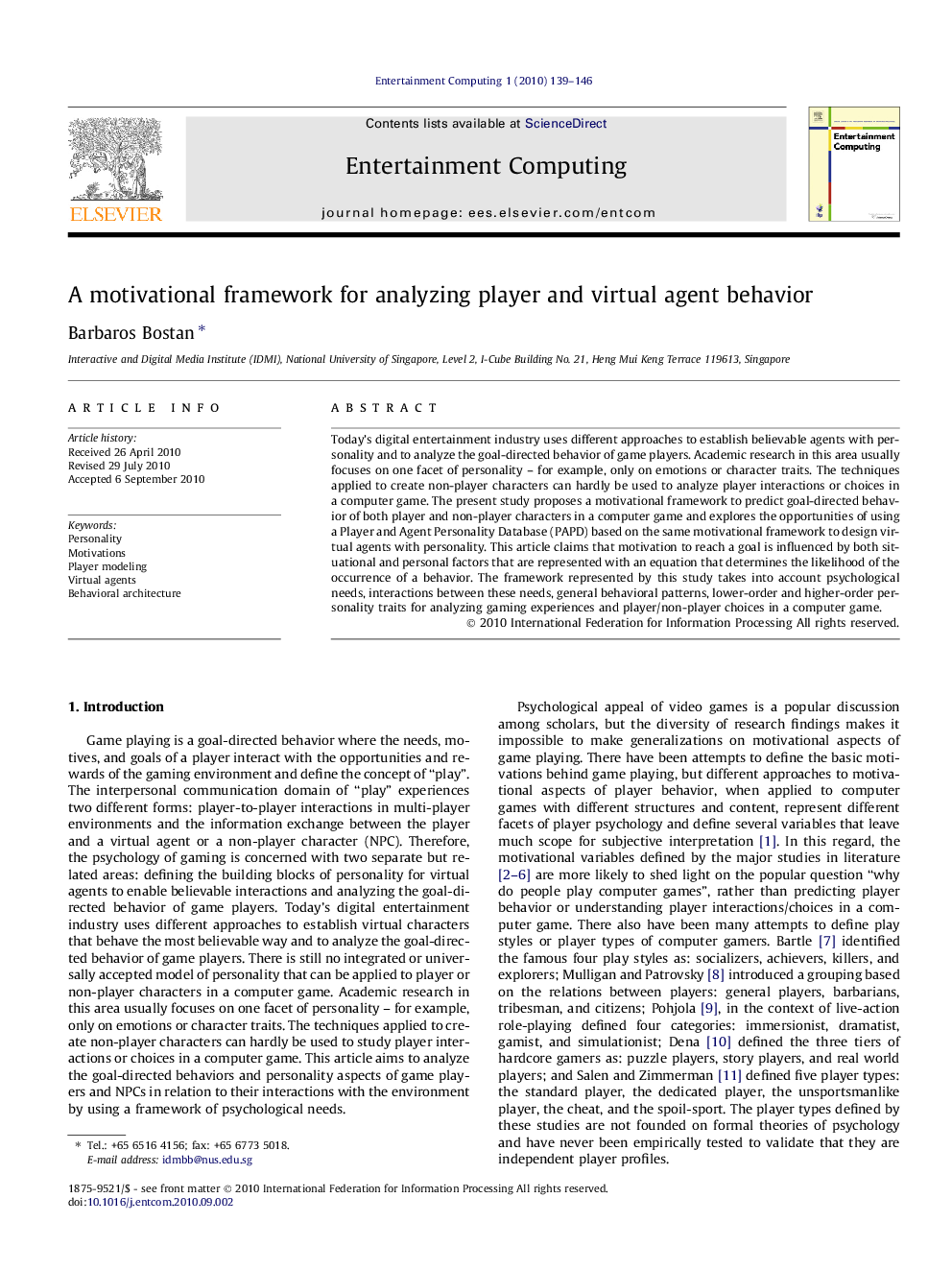| Article ID | Journal | Published Year | Pages | File Type |
|---|---|---|---|---|
| 381954 | Entertainment Computing | 2010 | 8 Pages |
Today’s digital entertainment industry uses different approaches to establish believable agents with personality and to analyze the goal-directed behavior of game players. Academic research in this area usually focuses on one facet of personality – for example, only on emotions or character traits. The techniques applied to create non-player characters can hardly be used to analyze player interactions or choices in a computer game. The present study proposes a motivational framework to predict goal-directed behavior of both player and non-player characters in a computer game and explores the opportunities of using a Player and Agent Personality Database (PAPD) based on the same motivational framework to design virtual agents with personality. This article claims that motivation to reach a goal is influenced by both situational and personal factors that are represented with an equation that determines the likelihood of the occurrence of a behavior. The framework represented by this study takes into account psychological needs, interactions between these needs, general behavioral patterns, lower-order and higher-order personality traits for analyzing gaming experiences and player/non-player choices in a computer game.
Research highlights► Motivation to reach a goal is influenced by both situational and personal factors. ► A framework based on psychological needs may yield better results in predicting player and non-player behavior. ► Critical component of modeling player or virtual character personality is to correspond psychological variables with individual actions. ► Determination of the likelihood of the occurrence of a player behavior requires constant monitoring of the player actions within the virtual world.
